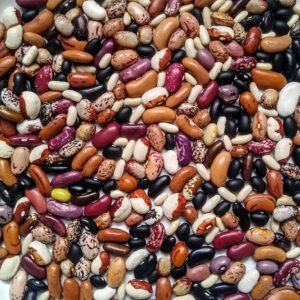
 OSA joined more than 130 organizations and businesses last week in a joint letter to USDA Secretary Tom Vilsack asking for responsible, fair, and comprehensive agricultural biotechnology regulations. The agency has authority under existing law to step up its regulatory oversight of genetically engineered (GE) crops to better protect U.S. farmers who choose and rely on non-GE products and markets. Unfortunately, the agency appears to be moving toward limiting its authority rather than strengthening it, even in the face of already weak regulations, ongoing contamination events, expensive lawsuits, and evidence that GE crops aren’t delivering on the biotechnology industry’s promises.
OSA joined more than 130 organizations and businesses last week in a joint letter to USDA Secretary Tom Vilsack asking for responsible, fair, and comprehensive agricultural biotechnology regulations. The agency has authority under existing law to step up its regulatory oversight of genetically engineered (GE) crops to better protect U.S. farmers who choose and rely on non-GE products and markets. Unfortunately, the agency appears to be moving toward limiting its authority rather than strengthening it, even in the face of already weak regulations, ongoing contamination events, expensive lawsuits, and evidence that GE crops aren’t delivering on the biotechnology industry’s promises.
The full letter is after the jump.
September 16, 2011
The Honorable Thomas Vilsack
Secretary of Agriculture
U.S. Department of Agriculture
1400 Independence Avenue, S.W.
Washington, D.C. 20250
Re: Responsible Regulation of Genetically Engineered Crops
Dear Secretary Vilsack:
On behalf of the undersigned organizations that represent American farmers, consumers, and retailers, we ask you to implement your authority under the Plant Protection Act of 2000 (PPA) to fully protect the public health, the environment, and the economic interests of the United States. This authority should be implemented through responsible, fair, and comprehensive regulations to help prevent further damage to lucrative and important U.S. and international markets, to ensure farmer profitability and rural economic development, and to support environmental protection and consumer choice.
The USDA is currently relying on biotechnology regulations first established almost twenty-five years ago in 1987. Since then, the use of genetically engineered (GE) crops has become widespread, and GE crops and associated traits have become more complex. In 2000, Congress passed the PPA, recognizing the need for a more robust and modern regulatory framework governing the assessment and release of GE crops into the environment and the food supply. USDA’s Animal and Plant Health Inspection Service (APHIS) has been working on regulations to implement the PPA since 2004. However, to date the Agency has yet to issue these critical regulations.
We support the promulgation of a comprehensive rule implementing the PPA that uses the statute’s broad statutory authority in a responsible, balanced way. The needed rule must:
1. Regulate all GE crops.
APHIS must retain oversight of genetically engineered crops as the technology progresses. While not perfect, process-based regulations offer the best way to ensure responsible control of an ever-changing technology. There simply is not the knowledge to determine which crops are safe (and thus can be exempted from regulation) prior to a safety review. In addition, it has become clear that familiar GE crops once regarded as unobjectionable are having serious, unforeseen impacts that require proper assessment. As noted by the National Academy of Sciences in its 2002 report, The Environmental Effects of Transgenic Plants: Scope and Adequacy of Regulation, the use of genetic engineering as the trigger for regulation does not conflict with a commitment to a case-by-case, risk-based approach to regulation of this technology.
2. Broadly interpret USDA’s “noxious weed” authority under the PPA.
APHIS should broadly interpret the PPA’s noxious weed authority to fully mitigate or prevent all adverse effects of GE crops on agriculture, the environment, and public health, with specific focus on the economic harms from GE contamination, herbicide-resistant weeds, threats to public health, and the protection of biodiversity.
3. Implement a two-tiered permitting system.
APHIS should clarify that it retains authority to monitor and regulate GE crops throughout the field-testing phase and after commercialization so that it can address adverse impacts and contamination issues as they emerge. APHIS should require permits both for field trials and commercial cultivation of GE crops. Both kinds of permits should be conditioned on the appropriate compensation of growers whose crops are contaminated through violation of permit requirements.
4. Not incorporate the Low Level Presence policy.
APHIS’ Low Level Presence (LLP) policy is unscientific and fatally flawed. It allows unlimited levels of experimental GE crop material contaminating commercial food, feed, or seed to be deemed “non-actionable,” rendering the “low-level” appellation meaningless. The policy would also undermine prospects for co-existence by reducing the incentives of GE crop field-trial operators to prevent contamination in the first place. For coexistence to be feasible, the regulations must “establish scientifically valid and proven isolation and containment distances,” as mandated in the 2008 Farm Bill (Sec. 10204(C)(1)(c)). The regulations must also clarify that it is the responsibility of the developer and the grower of GE crops to establish and maintain appropriate isolation distances and other gene containment measures to minimize the potential for contamination.
5. Prohibit the introduction of pharmaceutical and industrial GE crops.
APHIS should use its noxious weed authority to prohibit the outdoor cultivation of plants engineered as biofactories for the production of drugs or industrial chemicals, and all cultivation of any pharmaceutical or industrial food crops. These crops produce compounds that may pose risks to human health and the environment, and in the event of inadvertent contamination can lead to huge costs throughout the supply chain.
6. Apply sound science to the regulation of GE crops.
In the past, APHIS has relied too heavily on applicant-provided research and unreliable information from biotech industry sources. In some cases, APHIS has given such information greater credence than conflicting data and analyses from its own sister agencies, such as the National Agricultural Statistics Service, the Natural Resources Conservation Service, and the Agricultural Research Service. Sound scientific assessment of the use, risks, and impacts of genetically engineered crops is impossible without solid, unbiased data. APHIS should not cherry-pick science but instead employ sound scientific principles, as required under the Plant Protection Act and the Obama Administration’s Memorandum on Scientific Integrity. The Memorandum stipulates that “[s]cience and the scientific process must inform and guide decisions of my Administration,” with the “highest level of integrity in all aspects of the executive branch’s involvement with scientific and technological issues.”
We respectfully urge you to implement our recommendations as you move to promulgate final comprehensive rules implementing the PPA. This is a pivotal moment. Unless these new rules are strong and protective, the coming generation of genetically engineered crops will put at risk our health, our environment, and some of the most promising sectors of our agricultural economy.
Sincerely,
Center for Food Safety, Andrew Kimbrell
Clif Bar & Company, Gary Erickson and Kit Crawford
Clif Bar Family Foundation, Thao Pham
CROPP Cooperative/Organic Valley, George Siemon
National Organic Coalition, Liana Hoodes
Organic Farming Research Foundation, Ariane Lotti
Organic Trade Association, Laura Batcha
Rural Advancement Foundation International – USA, Michael Sligh
Seed Matters, Matthew Dillon
Union of Concerned Scientists, Doug Gurian-Sherman
Abundance Cooperative Market, Jim DeLuca
AggregateND.com, Kirsten Moseng
Albert’s Organics, Melody Meyer
Alternative Energy Resources Organization (AERO), Kevin Moore
Angelic Organics Learning Center, Tom Spaulding
Ashland Food Co-op, Annie Hoy
Bees’ Needs, Mary G. Woltz
Beyond Pesticides, Jay Feldman
BriarPatch Co-op, Chris Maher
Bundy Creek Farm LLC, Cecelia Murray
California Farmers Union, Lynne McBride
Californians for GE-Free Agriculture, Renata Brillinger
Californians for Pesticide Reform, Tracey Brieger
Carolina Farm Stewardship Association, Roland McReynolds
CCOF, Claudia Reid
Center for Environmental Health, Charles Margulis
Central Co-op, Capel Melton
Chico Natural Foods Cooperative, Liz Tedesco
Church Women United of New York State, Mary M. Smith
Comeback Farm, Amy Hansen & Mark Canright
Consumers Union, Michael Hansen, Phd.
Co-op Partners Warehouse, Rick Christianson
Cornucopia Institute, Mark A. Kastel
Cuatro Puertas, Isaura Andaluz
Cumberland Countians for Peace & Justice and Network for Environmental & Economic
Responsibility of United Church of Christ, Donald B. Clark
Dr. Bronner’s Magic Soaps, David Bronner
Dakota Resource Council, Mark Trechock
Demeter Association/Stellar Certification Services, Jim Fullmer
Devin Gardens LLC, Christina A. Jacobs
Durango Natural Foods Co-op, Joshua Jackson
Eden Foods, Inc., Michael Potter
Equal Exchange, Keith Olcott
Family Farm Defenders, John Peck
Family Farmers Seed Cooperative, Don Tipping
Farm to Table Food Services, Jenny Huston
Farm, Forest, and Fiddlehead Consulting, Karl W. Hallen
Flatbush Food Cooperative, Barry Smith
Florida Organic Growers – FOG, Marty Mesh
Food & Water Watch, Patty Lovera
Food Democracy Now!, Dave Murphy
Foundation for Agricultural & Rural Resource Management & Sustainability – (FARRMS), Sue Balcom
Fresh Ideas Group, Sylvia Tawse
Friends of the Earth, Eric Hoffman
Global River, Inc., Susan White
Grassroots International, Nikhil Aziz
Growing Home, Harry Rhodes
Hoosier Organic Marketing Education (HOME), Cissy Bowman
iEat Green, LLC., Bhavani Jaroff
Illinois Stewardship Alliance, Wes King
Kirschenmann Family Farms, Inc., Fred Kirschenmann
Klamath Basin Fresh Direct, LLC., Hollis Baley
La Montanita Coop, Robin Seydel
Lee Thomas Farm Inc., Lee Thomas
LocalHarvers.org, Erin Barnett
Maine Organic Farmers and Gardeners Association – MOFGA, Russell Libby
McGrath Family Farms, Phil McGrath
Michigan Organic Food and Farm Alliance, Taylor
Midwest Organic Sustainable Education Service -(MOSES), Harriet Behar
Misty Mountain Farm, Daninne Egizio
Montana Organic Association, Daryl Lassila
Mountain Rose Herbs, Bryan Burnette
National Cooperative Grocers Association, Robynn Shrader
National Family Farm Coalition, Kathy Ozer
National Sustainable Agriculture Coalition – NSAC, Susan Prolman
Nature’s Pace Organics, Katie Mullance & Jacob Back
Nature’s Path Foods Inc., Dag Falck
Nebraska Sustainable Agriculture Society, William A. Powers
Neighboring Food Co-op Association, Erbin Crowell
New England Small Farm Institute, Judith Gillan
Northeast Organic Farming Association (NOFA) – CT, Bill Duesing
Northeast Organic Farming Association (NOFA) – NY, Lea Kone
Northeast Organic Farming Association (NOFA) – RI, Michelle Rosenberg
Northeast Organic Farming Association (NOFA) – VT, David L. Rogers
Northeast Organic Farming Association (NOFA) – Interstate Council, Steve Gilman
Northeast Organic Farming Association (NOFA) – MA, Jack Kittredge
Northeast Organic Dairy Producers Alliance (NODPA), Ed Maltby
Northern Plains Sustainable Agriculture Society (NPSAS), Karri Stroh
Northwest Center for Alternatives to Pesticides (NCAP), Kim Leval
Ocean Beech People’s Organic Food Co-op, Nancy L. Casady
Ohio Ecological Food and Farm Association, Carol Goland
Oregon Organic Coalition, Connie Karr
Oregon Tilth, Chris Schreiner
Organic Ag Advisors/Heaven & Earth Farm/Felix Gillet Institute (The FGI), Amigo Cantisano
Organic Consumers Association, Alexis Baden-Mayer
Organic Farmers’ Agency for Relationship Marketing Inc. – OFARM, John Bobbe
Organic Producers Iowa, Nebraska, S. Dakota (OPINS Co-op), Mike Williams
Organic Seed Alliance, Kristina Hubbard
Organic Seed Growers and Trade Assoc., Jim Gerritsen
Organically Grown Company, Josh Hinerfeld
Pastures of Plenty Farm, Sylvia Tawse
Pennypack Farm & Education Center, Pat Druhan
Phoenix Community Garden, Andrew Werthmann
Planet Community-Educational Advocacy, Janet Elaine Ebaugh
Preston of Dry Creek/Organic Farmer/CROPP Cooperative Shareholder, Lou Preston
Provender Alliance, Susan Schechter
River’s Blessings LLC., Marilyn Pratt
Sierra Club Genetic Engineering Action Team, Laurel Hopwood
Small Planet Institute, Anna Lappé
Southeastern African-American Farmers Organic Network – (SAAFON), Cynthia Hayes
Southern Sustainable Agriculture Working Group – (Southern SAWG), Jim Lukens
Stephens Family For Safe Food, Michelle Wietek-Stephens
Stonyfield Farm, Inc., Gary Hirshberg
Sustainable Agriculture of Louisville, Andrew Kang Bartlett
Sustainable Living Systems, Jill Davies
Sylvester Manor Educational Farm, Nate Kraus-Malett
Tasting Awareness, Natalie A. Soleil
The Oakland Institute, Frederic Mousseau
Organic & Non-GMO Report, Will Davis
Three Sisters Farm & Cooperative/Cooperative American Indian Mothers Inc, Beverly Collins-Hall
Tilth Producers of Washington, Nancy Allen
Truth in Labeling Coalition, Anne Dietrich
Up Right Farms, Owen & Michele Trangsrud
Urban Organicz Inc., Ashley Powell & DeCinces Martin
Veritable Vegetable, Bu Nygrens
Verley’s Trace East, The Rev. Roger W. Verley
Virginia Association for Biological Farming, Kevin Damian
Viroqua Food Co-op, Jan Rasikas
Washington Biotechnology Action Council/49th Parallel Biotechnology Consortium, Philip L. Bereano
Washington Sustainable Food & Farming Network, Ellen Gray
WhiteWave Foods, Kelly Shea
Whole Foods Cooperative, Bob Sonnenberg
Wild Garden Seed, Frank Morton
Wildflower Springs Farm, Douglas Delling
Williamson Street Grocery Cooperative, Lynn Olson
Winter Sun Farms, Mary Woodburn
Wood Prairie Farm, Jim & Megan Gerritsen
